Click a panel to go directly to the details
Heat Transfer and ASME Standards Panel
Machine Learning in Applied Heat Transfer Panel
Research Funding Opportunities Panel
Frontiers in Heat/Mass Transport Intensification Panel
Standards for Thermal Energy in Phase Change Materials
Impact of COVID-19 Panel on Careers
Heat Transfer and ASME Standards Panel
Thursday, June 17, 1:00pm-2:30pm
Panel Description: This panel will highlight ASME Standards and Certification activities related to heat transfer and the role of ASME standards in heat transfer industry practice. ASME standards committees related to heat transfer include but are not limited to: Verification & Validation, Thermal Medicine, Pressure and Temperature Instruments, Additive Manufacturing, Overpressure Protection, and Welding, Brazing and Fusing
Moderator
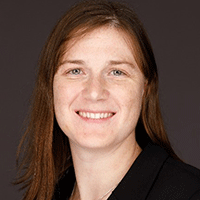
Dr. Amy Mensch is a mechanical engineer in the Fire Research Division of the Engineering Laboratory (EL) at the National Institute of Standards and Technology (NIST), where she has conducted research on the thermal performance of fire fighter respirators, smoke deposition and detection, and ember heat transfer in the context of wildland-urban interface fires. Dr. Mensch received her B.S. in mechanical engineering from the University of Maryland Baltimore County and her M.S. and Ph.D. degrees in mechanical engineering from Penn State University. She served as a technical advisor for the 2013 revision of NFPA 1981 - Standard for Open Circuit Self-Contained Breathing Apparatus for Fire and Emergency Services. She has been an active member of ASME for nine years and is currently the 2020-2021 ASME ECLIPSE Intern with the Standards and Certification (S&C) sector, working to improve communication and collaboration between ASME’s technical divisions and S&C.
Panelists
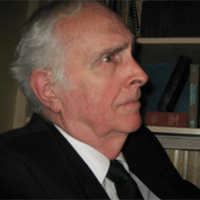
Jack Burns is an engineer at Burns Engineering Services Inc., a company that independently specializes in the technology of power plant steam condensers and cooling towers. He previously worked as Engineering Manager of development in the Condenser Division of Ingersoll-Rand and as the cooling system Specialist for the Stone & Webster Engineering Corporation. He is honored to currently be the Chair of the separate, national ASME Test Code Committees on Condensers, Cooling Towers, and Air Cooled Steam Condensers and is a Member of the Supervisory ASME Committee. Jack is a licensed PE in several states, has written and presented over three dozen papers in the field and holds four patents. He has a Batchelor Degree in Marine Engineering from the New York State Maritime College and a MS in Mechanical Engineering from Lehigh University.
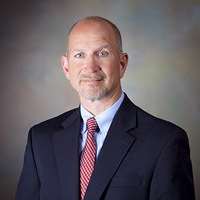
Kevin Dowding is a member of the technical staff in the Verification, Validation, Uncertainty Quantification, and Credibility Processes Department at Sandia National Laboratories. He has worked the past 20+ years on the application of verification and validation to computational modeling. He has led and participated on projects spanning complex modeling applications across various engineering disciplines and as a part of model-based risk assessment. He is active in the ASME V&V Standards community and Heat Transfer Division.
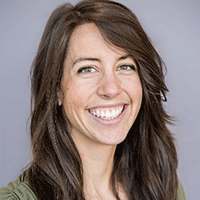
Katie Kirsch is a Senior Research Engineer at Raytheon Technologies Research Center. Since joining the Research Center in 2019, she has been involved in experimental and modeling activities across multiple fluid- and thermal-related applications. Her technical interests lie at the intersection of heat transfer, additive manufacturing, and design, with an emphasis on topology and shape optimization. As part her work supporting the research needs of Raytheon Technologies’ business units, Katie is involved in the full additive manufacturing workflow: designing, building, testing, and qualifying additive components. Katie received her Ph.D. in Mechanical Engineering from The Pennsylvania State University focusing on shape optimization of wavy micro-cooling channels for applications in gas turbine engines or electronics cooling.
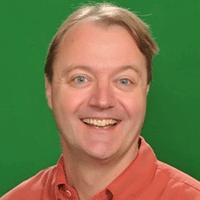
Thomas G. Lestina, Senior Vice President, Engineering, has more than 30 years of engineering project management experience. He directs HTRI's contract and consulting services, as well as oversees research and technical support. Lestina also assists in developing and customizing training and teaches courses. He earned a BS in Mechanical Engineering from Union College, Schenectady, New York, USA, and an MS in Mechanical Engineering from Rensselaer Polytechnic Institute, Troy, NY. Prior to joining HTRI, he worked as a Lead Engineer for MPR Associates, Inc., Alexandria, Virginia, USA. Besides being a member of ASME, he serves on the technical committee for the ASME Performance Test Code 12.5, Single Phase Heat Exchangers. He is a licensed Professional Engineer (PE) in Texas.
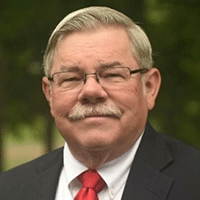
William F. Newell, Jr., PE, PEng, IWE, is involved in welding engineering applications and consulting in the nuclear & fossil electric power and heavy industrial arenas for nearly 50 years, both domestic and internationally. Bill is a member on national and international code bodies, a Life Member and Counselor in the American Welding Society, and a member of AWS A5N, Chair of AWS D10 Piping and Tubing, a Member of ISAC and ISO/TC 44, International Committee on Welding and Allied Processes, plus a member of ASME Standards Committee IX – Welding and Brazing Qualifications, ASME Post Construction Issues – Subcommittee on Materials and Repair, former Chair of ASME SCII/IX Subgroup on Strength of Weldments, and a member on the ASME SCII Working Group on Creep Strength-Enhanced Ferritic Steels. He is the President of W. F. Newell & Associates, Inc., and Co-Founder/Vice President – Engineering of Euroweld, Ltd.
Machine Learning in Applied Heat Transfer Panel
Thursday, June 17, 10:00am-11:30am
Organizers: Metodi Zlatinov, Michael Ohadi, Marcus Richardson
Topic Scope: This panel brings together experts at the intersection of artificial intelligence (A.I.) and heat transfer, to discuss the opportunities and challenges of applying machine learning (ML) tools to solve thermal problems. Machine learning (ML) is a branch of the artificial intelligence (A.I.) that deals with algorithms capable of making predictions and decisions based on prior data, without relying on explicit instructions from a human. The field is quickly gaining traction in many industrial applications. Some examples relevant to heat transfer include metamodel-assisted shape/topology optimization and generative design. The goal of this panel discussion will be to review current applications of ML in the heat transfer community, and to examine future opportunities, challenges, and risks.
Panelists
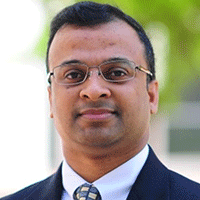
Vikrant C. Aute
University of Maryland College Park
Vikrant Aute is a Research Scientist and Director of the industry and government-supported Modeling & Optimization Consortium at the University of Maryland. He has more than 20 years of experience in developing algorithms and numerical methods for modeling and design optimization of heat exchangers and heat pumps. His research focuses on modeling and optimization of HVAC&R systems and components, innovation in next-generation heat exchangers, approximation assisted and multi-objective robust optimization, data visualization, and applications of machine learning to HVAC&R. He is an ASME Fellow and Associate Editor for the ASME J. of Thermal Science and Engineering Applications. He has published over 180 papers, has five commercialized inventions and one issued patent. He holds a BE in Mechanical Engineering from the University of Pune (India), MS and PhD in Mechanical Engineering from the University of Maryland, and an MS in Data Analytics from the University of Maryland University College.
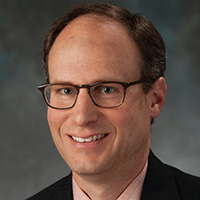
David Tew
ARPA-E
Dr. David Tew is currently a Program Director at the Advanced Research Projects Agency - Energy (ARPA-E), which is part of the U. S. Department of Energy. At ARPA-E, he is leading the INTEGRATE, DIFFERENTIATE, and REEACH Programs. INTEGRATE and REEACH are focused on the development of ultra-efficient (>70%) fuel (fossil or renewable) to electric power conversion systems for both stationary and transportation applications. DIFFERENTIATE seeks to develop machine-learning-enhanced engineering design tools to enhance the productivity of energy engineers as they develop technology solutions to our current climate crisis. Prior to ARPA-E, Dr. Tew worked for United Technologies Corporation for nearly 20-years--at the Research Center, Pratt & Whitney and UTC Power. He has a B. S. in Aerospace Engineering summa cum laude from the University of Michigan, an S. M. and Ph. D. in Aeronautics and Astronautics from MIT, and an M. B. A. from Columbia Business School.
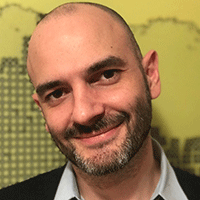
Matteo Bucci
Massachusetts Institute of Technology
Matteo Bucci is Assistant Professor of Nuclear Science and Engineering at MIT, where he teaches undergraduate and graduate courses in nuclear reactor engineering and design, and two-phase heat transfer. His research focuses on the understanding of two-phase heat transfer mechanisms and the development of non-intrusive optical diagnostics and data analysis techniques. For his research work and his teaching, he has won several awards, among which the MIT Ruth and Joel Spira Award for Excellence in Teaching (2020), the European Nuclear Education Network Award (2010), and the 2012 American Nuclear Society Thermal-Hydraulics Division Best Paper Award (2012). Matteo is Associate Editor of Applied Thermal Engineering and a consultant for the nuclear industry.
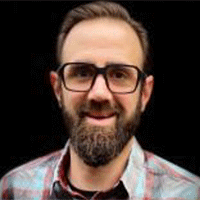
Ryan P. O'Hara
nTopology
Dr. Ryan P. O'Hara is currently serving as the Technical Director for Aerospace and Defense at nTopology. Ryan joined nTopology in April 2019 after 20 years of military service, where he worked on cutting-edge technologies for the United States Air Force as a Developmental Engineer. Ryan is passionate about demonstrating the power of implicit geometry to enable optimized designs through the use of meta-materials, hierarchical structures, and advanced manufacturing. He is currently working at the intersection of design and automation to enable the next generation of compact heat exchangers for the aerospace industry.
Moderators
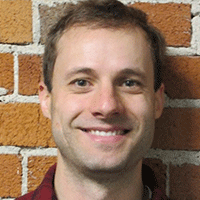
Metodi Zlatinov is a Senior Engineer at ERG Aerospace, responsible for leading R&D efforts on open celled metal foam for application in high performance heat exchangers, flow control components and energy absorbers. Prior to joining ERG, Zlatinov advanced the state of the art in CFD-based optimization while developing cooling technologies for gas turbines at GE Aviation, and later led the fluid design and hydraulic testing efforts for novel hydroelectric turbines at Natel Energy. Zlatinov earned his S.M in Aeronautics and Astronautics from M.I.T, and a B.S.E. in Mechanical and Aerospace Engineering from Princeton University.
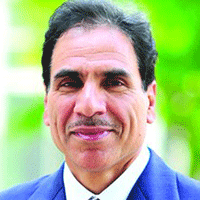
Michael Ohadi is a Minta Martin Professor of Mechanical Engineering at the University of Maryland, College Park. From 2016 to 2020, Ohadi served as Program Director (PD) at the U.S. department of energy, Advanced Research Project Agency-energy (ARPAE). As PD, Ohadi led the development of programs in high-temperature heat exchangers and energy conversion systems, and lightweight and ultra-efficient electric motors, drives, and associated thermal management systems for de-carbonization/electrification of aviation. Ohadi received his Ph.D. in mechanical engineering from the University of Minnesota and joined the University of Maryland in 1990. He is a fellow member with both ASME and ASHRAE and has published close to 300 peer reviewed technical publications in his fields of expertise.
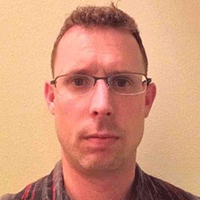
Marcus Richardson is a senior engineer in the Boeing Commercial Airplanes Product Development group. He develops pneumatic systems for aircraft pressurization, cabin air conditioning and protective systems and thermal management solutions and the analysis tools that support that development. He is named on 14 patents with The Boeing Company. He received his BS in mechanical engineering from California State University, Long Beach in 2005. He is member of ASME.
Research Funding Opportunities Panel
Wednesday, June 16, 1:00pm – 2:30pm
Program Directors from various federal agencies will discuss research programs and funding opportunities in areas of interest to participants in the Summer Heat Transfer Conference including Thermal Transport, Thermal Management, Energy Efficiency, and Renewable Energy.
Panelists

Dr. Peter de Bock currently serves as Program Director at the Advanced Research Projects Agency-Energy (ARPA-E). His focus at ARPA-E includes electronics thermal management and electrified aviation propulsion systems.
Prior to joining ARPA-E, Dr. de Bock spent nearly 18 years with GE Research, holding various research and development positions. At GE Research, Dr. de Bock served as a Principal Engineer and Platform Leader for Power and Thermal Management Systems, and principal investigator on advanced programs in the areas of additive heat exchangers and advanced propulsions systems. Dr. de Bock also serves as the chair of the ASME K-16 committee on Heat Transfer in Electronics equipment and holds over 50 patents and publications.
Raised in the Netherlands, Dr. de Bock received his Ph.D. in Mechanical Engineering from the University of Cincinnati and holds MSc degrees from University of Twente in the Netherlands, and University of Warwick in the UK.
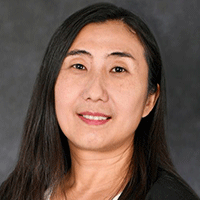
Dr. Ying Sun, Program Director of the Thermal Transport Processes program at NSF, Professor of Mechanical Engineering and Mechanics at Drexel University. Dr. Sun received her bachelor's degree at Tsinghua University in Beijing. She completed her Master’s and PhD at the University of Iowa. She joined Drexel's College of Engineering faculty in 2009. She has authored over 65 refereed publications, supervised six PhD dissertations, 12 Master’s theses, over 25 undergraduate researchers, and eight post-docs. Her research interests include multiphase flows and heat/mass transport, multiscale modeling of transport phenomena, wetting and interfacial phenomena, and scalable nanomanufacturing. Dr. Sun's lab is funded by the NSF, DOE, ARPA-E, AFOSR, EPRI, ACS PRF, Ben Franklin Technology Partners, and industry. She is a Fellow of the ASME.
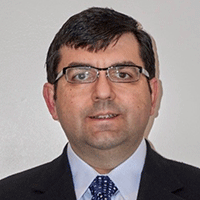
Antonio M. Bouza is a Technology Manager with U.S. Department of Energy's Office of Energy Efficiency and Renewable Energy (EERE), Advanced Manufacturing Office (AMO). He has been with DOE for over twenty years as a technology and project manager including several rulemakings with respect to energy efficiency standards. Before joining DOE, he was senior engineer with EG&G Technical Services and worked for Environmental Research and Development Corp performing emissions testing on alternative fuel vehicles. He holds a Bachelor's Degree in Mechanical Engineering from the University of Maryland at College Park, a Master's Degree in Mechanical Engineering from The Johns Hopkins University. He is a member of the American Society of Mechanical Engineers (ASME), Society for Industrial and Applied Mathematics (SIAM) and The American Society of Heating, Refrigerating and Air-Conditioning Engineers (ASHRAE).
Moderator
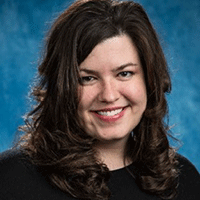
Dr. Sandra Boetcher is a Professor of Mechanical Engineering at Embry-Riddle Aeronautical University and a Fellow of ASME. She obtained her B.M.E., M.S., and Ph.D. in Mechanical Engineering from the University of Minnesota in 2001, 2003, and 2006, respectively. Prior to her appointment at Embry-Riddle, Professor Boetcher was a founding faculty member in the newly formed Department of Mechanical and Energy Engineering at the University of North Texas.
Frontiers in Heat/Mass Transport Intensification Panel
Friday, June 18, 1:30pm-3:00pm
Organizers:
- Michael Ohadi
- Marcus Richardson
- Metodi Zlatinov
Panelists
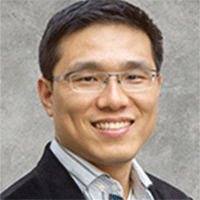
Dr. Philseok Kim is a program director at ARPA-E with a focus on innovative materials and engineered interfaces for energy storage systems and electrification and deep decarbonization of the building sector. Prior to joining ARPA-E, Dr. Kim co-founded Adaptive Surface Technologies, Inc. leveraging ARPA-E-funded SLIPS projects and launching commercial products such as fouling-resistant and fuel-saving ship hull coatings. He also co-led SLIPS project at Harvard University to improve the energy efficiency of refrigerators by reducing frost formation and defrost time. Dr. Kim has 12 years of experience in petrochemicals, polymers, and coatings industry. Raised in South Korea, Dr. Kim received his B.S. and M.S. from Seoul National University then Ph.D. in chemistry at Georgia Institute of Technology. Dr. Kim has published over 40 papers in high-impact, peer-reviewed journals and holds about 40 issued patents in surface functionalization, materials for organic field-effect transistors, adaptive optical materials, and slippery surfaces.
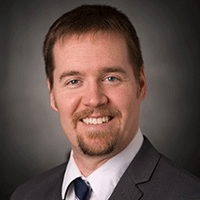
Dr. Stephen Lynch is an associate professor of Mechanical Engineering at Penn State, and is the director of the Experimental and Computational Convection Laboratory. He received his BSME from the University of Wyoming in 2003, and his MS and PhD from Virginia Tech in 2007 and 2011, respectively. He joined Penn State in 2013, after working as a senior research engineer for two years with United Technologies Research Center (now Raytheon Technologies Research Center). He received a 2015 Office of Naval Research Young Investigator award, and has been responsible for more than $2.5M of research funding to date.
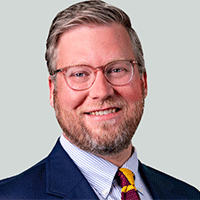
Dr. Addison K. Stark is a mission-driven leader focused on commercializing advanced technologies in the energy and industrial sectors. He has broad experience across Government, Start-ups, Policy and Academia. Dr. Stark is the Director for Energy and Environment at Clark Street Associates, a boutique consulting firm focused on helping hard-tech start-ups develop first markets and demonstration projects. In addition to his work at Clark Street, Dr. Stark serves on the faculty at Georgetown University in the Science Technology and International Affairs program in the Walsh School of Foreign Service. Prior to joining Clark Street he led the Energy Innovation program at the Bipartisan Policy Center, and served as a Fellow and Acting Program Director at ARPA-E. While at ARPA-E, he led ARPA-E’s $33 million Energy-Water Nexus portfolio, the Advanced Research In Dry-cooling (ARID) program. Stark is the author of multiple peer reviewed journal articles and popular press pieces on diverse topics in energy technology innovation including: industrial decarbonization, hybrid PV/thermal solar energy, energy-water nexus, leveraging additive manufacturing for chemical reactor design, and innovation in energy technology and finance. Dr. Stark received his PhD in Mechanical Engineering at MIT and holds Masters’ degrees in Technology and Public Policy and Mechanical Engineering from MIT and Bachelors’ degrees in Mathematics and Chemistry from the University of Iowa.

Dr. Peter de Bock currently serves as Program Director at the Advanced Research Projects Agency-Energy (ARPA-E). His focus at ARPA-E includes electronics thermal management and electrified aviation propulsion systems.
Prior to joining ARPA-E, Dr. de Bock spent nearly 18 years with GE Research, holding various research and development positions. At GE Research, Dr. de Bock served as a Principal Engineer and Platform Leader for Power and Thermal Management Systems, and principal investigator on advanced programs in the areas of additive heat exchangers and advanced propulsions systems. Dr. de Bock also serves as the chair of the ASME K-16 committee on Heat Transfer in Electronics equipment and holds over 50 patents and publications.
Raised in the Netherlands, Dr. de Bock received his Ph.D. in Mechanical Engineering from the University of Cincinnati and holds MSc degrees from University of Twente in the Netherlands, and University of Warwick in the UK.
Standards for Thermal Energy in Phase Change Materials
Thursday, June 17, 3:30pm-5:00pm
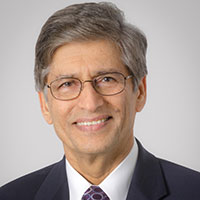
Dr. D. Yogi Goswami, Ph.D, PE is a Distinguished University Professor and Director of the Clean Energy Research Center at the University of South Florida. He is also a Co-Founder and Chief Science and technology Advisor of Molekule, Inc.
Dr. Goswami is the Editor-in-Chief Emeritus of the Solar Energy journal. He has published as an author or editor 22 books and more than 400 scientific papers. Dr. Goswami is a recipient of the highest energy related awards of ASME, ASES, ISES and AAES and more than 50 other awards and certificates from major engineering and scientific societies. Dr. Goswami is a Fellow of AAAS, ASHRAE, ASES, ISES and the National Academy of Inventors. He is a Honorary Member of ASME.
Prof. Goswami has served as President of the International Solar Energy Society (ISES), a Governor and Senior Vice President of ASME-International, and President of the International Association for Solar Energy Education (IASEE).
He also holds 31 patents and has been inducted in the Florida Inventors Hall of Fame. His invention of Photo-electrochemical oxidation (PECO) technology for air purification, which is commercially available as Molekule, was picked as one of the 25 best inventions by Time magazine.
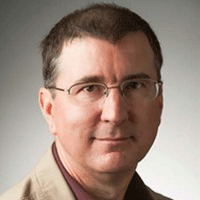
Dr. Craig Turchi is the group manager for the Thermal Energy Science and Technologies Research Group at the National Renewable Energy Laboratory and acting manager for the NREL Geothermal Program. He research focus includes thermal energy storage technologies and techno-economic assessment. Craig has a PhD in chemical engineering from North Carolina State University.
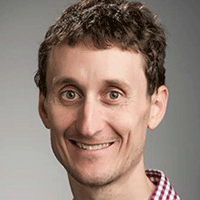
Dr. Jason Woods is a senior research engineer in NREL’s Building Technologies and Science Center where he specializes in heat and mass transfer, including the design, analysis, and testing of heat and mass transfer devices and processes. Jason’s recent focus has been on modeling and valuing how phase change materials can improve the efficiency of energy systems by time shifting or reducing peak thermal loads. This research sets a clear framework for comparing thermal storage materials and devices and can be used by researchers and designers to increase clean energy use with storage. Jason has a Ph.D. Mechanical Engineering from the University of Colorado.
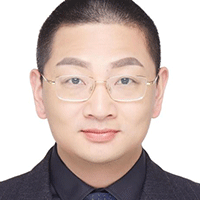
Dr. Yi Jin graduated from University of Science and Technology Beijing in 2010 with doctor degree. Then he joined Institute of Process Engineering, Chinese Academic Sciences and Global Energy Interconnection Research Institute, State Grid of China. Now he works as R&D director of Jiangsu Jinhe Technology Company. In the past decades, he developed composite phase change materials with micro encapsulation technology and its scale up technologies.. These materials have been used for the waste heat recovery, renewable energy consumption and cold chain, etc. In the thermal energy storage area, he publishes over 50 journal papers and applies 30 patents. He participants in three Chinese standards in thermal energy storage area.
Impact of COVID-19 Panel on Careers
Friday, June 18, 11:30am – 1:00pm
Moderator
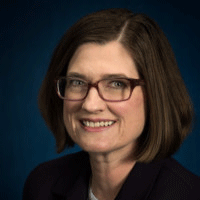
Dr. Leslie M. Phinney is Manager of the Thermal Sciences and Engineering Department at Sandia National Laboratories in Albuquerque, New Mexico. She earned Mechanical Engineering M.S. and Ph.D. degrees from UC Berkeley and an Aerospace Engineering B.S. from UT Austin. She is a Fellow of ASME and a 2017 Society of Women Engineers Prism Award recipient. She is currently chairing the K23 Committee on Diversity, Equity, and Inclusion.
Panelists
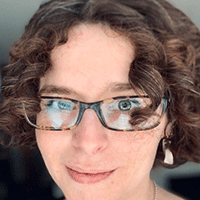
Ms. Maria Lund Dahlberg is a Senior Program Officer and Study Director with the Board on Higher Education and Workforce and the Committee on Women in Science, Engineering, and Medicine of the National Academies of Sciences, Engineering, and Medicine. Her current work focuses on the Impact of COVID-19 on the Research Careers of Women in Academic Science, Engineering, and Medicine; the Response and Adaptation of Higher Education to the COVID-19 Pandemic; the Science on Effective Mentoring in STEMM (Science, Technology, Engineering, Mathematics, and Medicine); and Equity, Diversity, and Inclusion in Postsecondary Education. Her work with the National Academies spans topics ranging from equity and identity in science, through science communications, to postdoctoral research experiences, health care, and innovation ecosystems. She came to the National Academies by way of a Christine Mirzayan Science and Technology Policy Fellowship, which she received after completing all requirements short of finalizing the dissertation for her doctorate in physics at the Pennsylvania State University. Ms. Lund Dahlberg holds a BA with high honors in physics from Vassar College and an MS in physics from the Pennsylvania State University.
Ms. Dahlberg will review the findings and the range of disruptions experienced by women in academic STEMM careers during 2020 as laid out in the March 2021 NASEM report, "Impact of COVID-19 on the Careers of Women in Academic Sciences, Engineering, and Medicine," and discuss how the COVID-19 pandemic amplified structural inequities for women in academic STEMM.
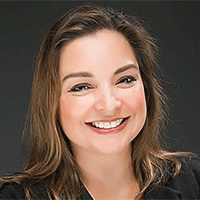
Roberta Rincon, PhD, is the Associate Director of Research for the Society of Women Engineers (SWE). She oversees the organization's research activities on gender equity issues affecting women in engineering and technology, through education and career. In this role, she applies her expertise to influence cultural and policy changes in academic, industry, and public policy spheres.
Before joining SWE, Roberta was a Senior Research and Policy Analyst at The University of Texas System in the Office of Academic Affairs. Roberta received her B.S. in Civil Engineering from The University of Texas at Austin, an MBA and an M.S. in Information Management from Arizona State University, and a Ph.D. in Educational Policy and Planning from UT Austin.

Dr. Amy Mensch is a mechanical engineer in the Fire Research Division of the Engineering Laboratory (EL) at the National Institute of Standards and Technology (NIST), where she has conducted research on the thermal performance of fire fighter respirators, smoke deposition and detection, and ember heat transfer in the context of wildland-urban interface fires. Dr. Mensch received her Ph.D. in mechanical engineering from Penn State University in 2015, where she researched heat transfer in gas turbine applications. She has been an active member of ASME for nine years and is currently the 2020-2021 ASME ECLIPSE Intern with the Standards and Certification sector.
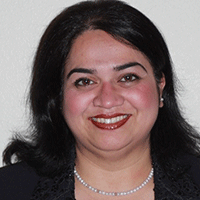
Rahima Mohammed is an Intel Senior Principal Engineer in Intel Architecture Graphics Software (IAGS) team and leads the Automation Infrastructure and Workload Sensing office of IP Competitive Analytics (IPCA). Prior to this, she served as a customer delight office lead for strategic customers in the Performance, power and competitive analysis (P2CA) team in IAGS and Data Center Customer Solutions Technologist in Manufacturing Validation Engineering (MVE). Rahima led the data mining efforts on customer returned parts. She has been with Intel over 22 years after graduate schooling from Yale. Before joining MVE, she served as the advanced test module technologist in Manufacturing Development Organization (MDO). Prior to that, she served as the path finding czar for strategic emerging technologies across market segments and also setup the innovation programs for the division. Rahima led the team to deliver 15 advanced validation platform designs and pioneered innovative temperature margining thermal tools for over thirty-five silicon products.
She also chairs various technical steering committees and serves on Industry advisory boards. She demonstrates consistent leadership in IP creation, and has published 140+ papers in Intel internal and external conferences and filed 8 patents. She serves as a reviewer for various conferences like Itherm, Interpack, and a program committee member of IEEE Semi-therm conference and Burn-in-test strategies/TestConX workshop.

Dr. Yoonjin Won's overarching research goal is to gain fundamental insights into nanoscale phase change and interfacial principles, centering on keywords—machine vision, machine learning models, data-driven analysis, and materials design approach. The research efforts aim to bring transformational efficiency enhancements in energy, water, manufacturing processes, and electronics cooling by fundamentally manipulating liquid-solid-vapor interactions and transport phenomena across multiple length and time scales. Dr. Won is recognized with an NSF CAREER in 2018 and has also received several awards including the ASME EPPD Early Career Award 2018, The Emerging Innovation/Early Career Innovator of the Year 2020 from UCI Beall Innovation Center, ASME EPPD Women Engineer Award 2020, ASME ICNMM Outstanding Leadership Award 2019, UCI Samueli Career Development Fellowship, and numerous best paper and poster awards. The key papers are published in high impact journals including Small, Proceedings of National Academy of Science (PNAS), Advanced Functional Materials, and American Chemical Society (ACS). Additional details for Dr. Won’s qualifications and research group are available online.